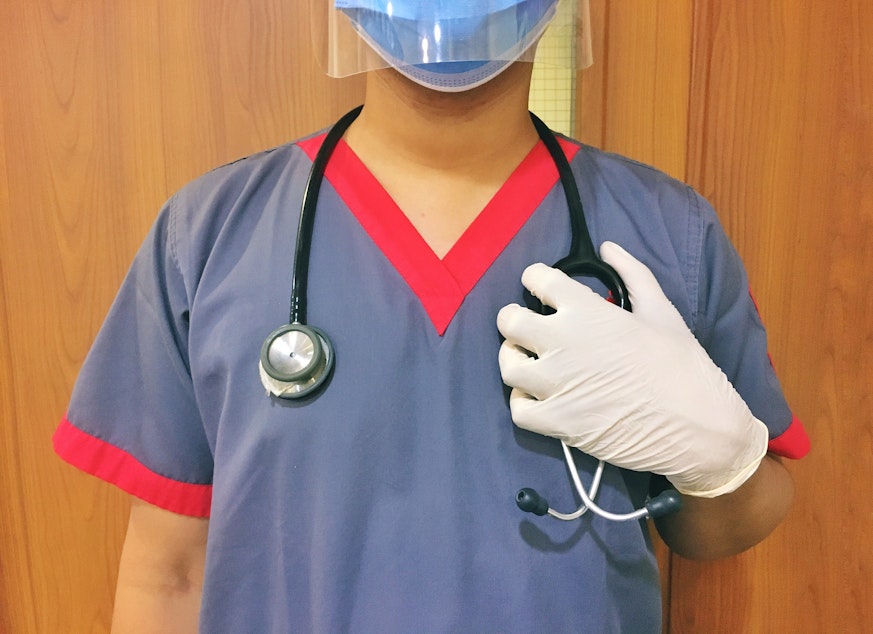RSV is on the rise among children, but figuring out where is complicated

Emergency rooms at children's hospitals are seeing dramatic increases in admissions due to RSV infections and other respiratory viruses. But there are complications to tracking the virus in rural communities especially.
RSV, or respiratory syncytial virus, is a common pediatric illness, with most children being infected by the virus around the age of two or three.
"It really presents like other viral infections," said Dr. Kimberly Stone, a clinical director and associate chief of emergency services and operations at Seattle Children’s. "It could cause fever, could cause a cough. The youngest patients — so usually young infants and neonates — can have significantly worse disease."
RSV spreads locally in the community every year, though Covid precautions over the last few years may have temporarily dampened spread of the virus, Stone said.
"We are seeing a significant transmission and uptick in viruses related to children not having been exposed to as many viruses over the last couple of years with the pandemic," Stone said.
Stone added that Seattle Children's is seeing a surge in ER visits and has converted as much area as possible into clinical spaces, including hallways and lobbies.
Sponsored
Signs that parents should get a child evaluated by medical professionals include increased work breathing, such as an increase in respiratory rate, using the abdomen or belly to breathe, sucking in around the ribs, flaring of the nostrils, or sucking in right along the top of the clavicles.
Knowing where RSV is spreading can be difficult, though. In rural areas like Kittitas County, there are many barriers to knowing whether RSV is transmitting locally in the community.
Cle Elum-Roslyn School District Nurse Annemarie Hill said that unlike Covid, for which regular testing is available, most people don't have access to testing for RSV and other respiratory illnesses.
"Unless a parent were to take their kid to the emergency room, we don't have the ability to know if their child has a different type of coronavirus or human para influenza virus, or if it's RSV," Hill said. "And that can be tough because then we don't have good data to know how many cases we actually have."





